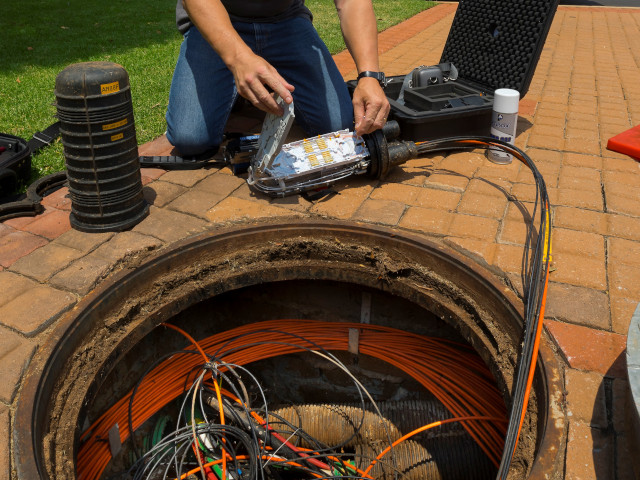How cable theft affects our communities
By Industry Contributor 20 October 2021 | Categories: news
News sponsored by Drive Control Corporation with Dell Client Peripherals:
By Selby Khuzwayo, Openserve regional officer (North-Eastern region)
Cable theft is a form of organised crime that has had a significant impact on businesses, communities, and the economy. The South African Chamber of Commerce and Industry estimates that cable theft costs the SA economy between R5bn to R7bn a year.
It affects the electricity, telecommunications and transport sectors, and each year SA’s parastatals spend millions of rands replacing stolen cables and restoring vandalised infrastructure due to cable theft.
What is driving cable theft?
The biggest driver of cable theft is the demand for copper, a commodity that has played a crucial role in global industrialisation. While the uses for copper have changed and technology infrastructure has advanced, it is still an essential component for infrastructure across many industries, including telecommunications. With copper being a valuable commodity, this has inevitably created an illicit market for this metal.
Cable theft has multiple players involved from petty criminals on the ground, who dig up the copper cables and extract them to sell to dealers, to more sophisticated and organised structures of the trade.
Once the copper is extracted, it is then sold to dealers and is often illegally shipped to countries such as China, which is the world’s largest importer of copper as it uses the metal for construction and manufacturing. In 2020, the country imported more than 4.6 million tonnes of refined copper.
what impact does cable theft have on communities?
The unlawful extraction of copper cables has a significant impact on communities as it interrupts many aspects of our lives. Cable theft often results in affected communities not having electricity supply for days or even weeks. Cable theft also interferes with the supply of internet connectivity as well as telephone communication. This crime affects the country’s transport and communication systems, which are crucial to SA’s economy. All of this has a dire economic impact on communities as some businesses are unable to conduct operations while some residents are unable to work or learn from home under such conditions. Cable theft not only affects economic productivity but can also influence investor perceptions as it relates to investing in South Africa, which will be detrimental to SA’s economic prosperity.
what has been done to fight this?
In 2009, the Second-Hand Act was introduced to regulate the business of dealers in second-hand goods and pawnbrokers, in order to combat the trade of stolen goods and to promote ethical standards in the second-hand goods trade.
The act states that a dealer must keep a register in the prescribed form and record in the register the prescribed particulars regarding every acquisition or disposal of second-hand goods. This includes details about the person’s identity including their identity number, full names, address and phone number. Dealers must also provide a description of the product including the serial number and any distinguishing features about the item. If dealers suspect that someone may be selling stolen goods, they need to report the matter to law enforcement.
While various task teams across the country have been appointed to tackle cable theft, as citizens, we all have a role to play in combating the illicit trade of copper cables. This crime impacts millions of lives and has economic consequences that affect businesses, communities and households. If you suspect that cable theft may be taking place in your neighbourhood, be sure to report such crimes and keep your community safe.
You can report cable theft and vandalism by contacting Telkom’s crime hotline on 0800 124 000.
Most Read Articles

Have Your Say
What new tech or developments are you most anticipating this year?



.gif)
